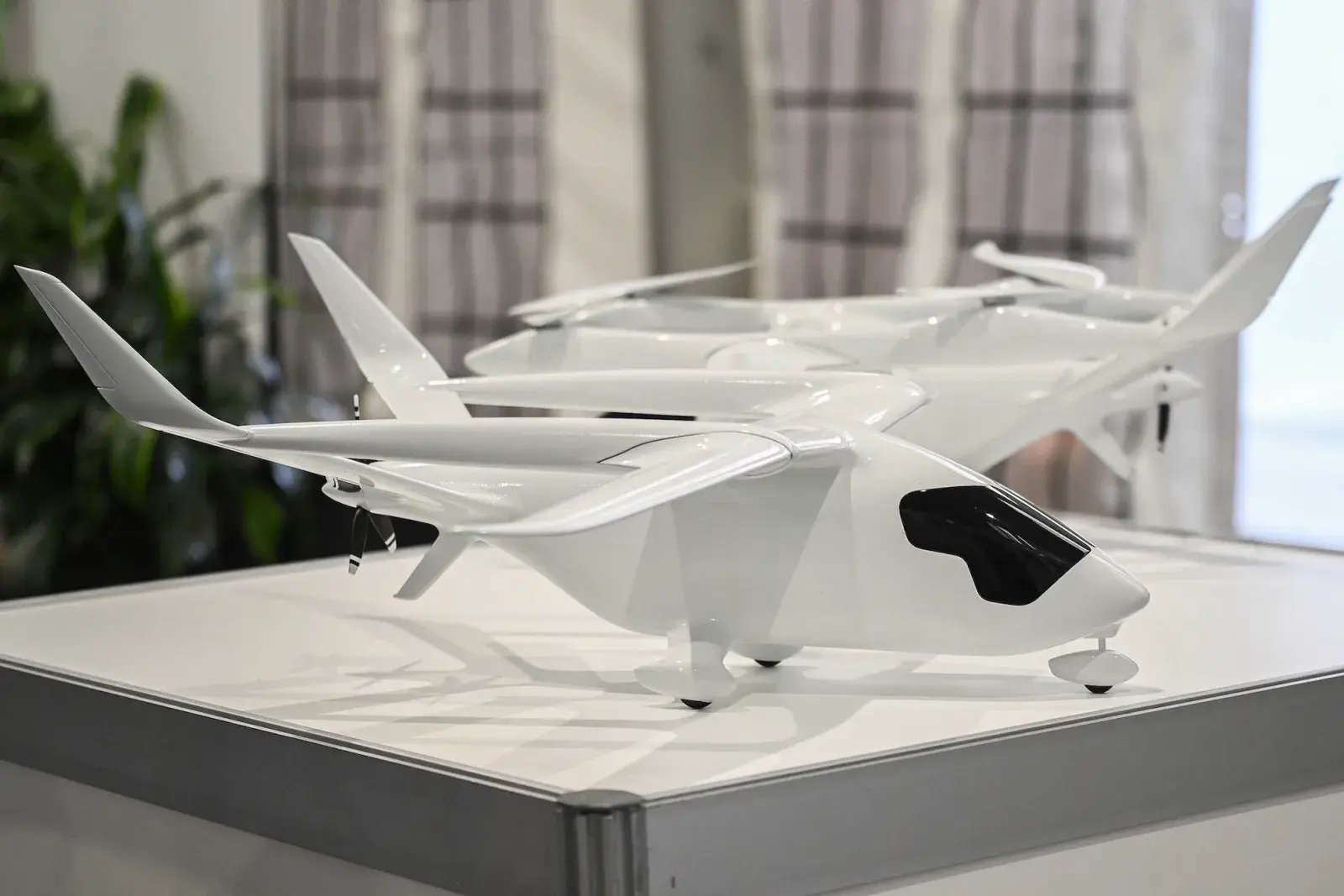In 1903, the Wright Brothers launched a new era of American innovation with their first successful powered flight in Kitty Hawk, North Carolina. More than 120 years later, it’s time for Congress to build on this proud American legacy by spearheading the newest revolution in flight: Advanced Air Mobility, or AAM.
Advanced Air Mobility isn’t a single technology—it’s a collection of technologies that will allow innovative aircraft, including electric, to integrate into our airspace system. Put simply, it’s a new way to think about air transportation, from private and recreational aircraft to public services to large cargo delivery.
Congress needs to pass our bipartisan bill to help AAM take flight.
Consider Vermont-based Beta Technologies. Beta, an aerospace company developing electric aircraft, was founded in 2017 by Kyle Clark, who began with eight employees and a dream: to develop a new aircraft technology to expand access to organ transplantation in rural areas. Ten months later, Kyle and his team developed their initial prototype. Now, eight years after its founding, Beta Technologies is a powerhouse in Vermont, employing more than 800 people and running a state-of-the-art 188,500 square-foot manufacturing facility in South Burlington designed to produce up to 300 aircraft each year. Beta is also building out a national network of aircraft charging infrastructure to support the industry.
California-based Joby Aviation, meanwhile, has expanded production in its home state, in addition to expanding production in Ohio. This will support jobs and manufacturing right here in America.

We are moving in the right direction. The bipartisan FAA Reauthorization Act of 2024 included, for the first time, policy dedicated to bolstering growth within the electric aviation industry. The Pentagon has successfully tested the viability of AAM technologies for military use and transportation. In 2024, the Department of Health and Human Services implemented a pilot program to evaluate AAM as a cost-effective solution for medical supply delivery in the most rural areas of the East and Gulf Coasts.
Recently, Secretary of Transportation Sean Duffy announced a first-of-its-kind international collaboration to enable the safe rollout of AAM aircraft and unleash innovation in our skies. The Roadmap for Advanced Air Mobility Aircraft Type Certification was created in collaboration with our allies in Australia, Canada, New Zealand, and the United Kingdom.
In North Carolina, a recently announced partnership with Georgia will study the creation of the nation’s first interstate AAM corridor. This interstate highway in the sky will connect Charlotte and Atlanta, providing innovators, pilots, and regulators with real-world experience in AAM operations. Regional projects like this one will play a crucial role in developing a national framework for the safe and efficient integration of AAM into the national airspace.
This is exciting, forward-thinking progress, but we can’t let bureaucracy stifle innovation.
That is why we are introducing the bipartisan Aviation Innovation and Global Competitiveness Act, a bill to streamline certification review standards at the FAA by establishing timelines for the agency to consider the merits of AAM applications ahead of commercialization. This bill is cosponsored by Senator John Curtis (R-Utah).
This could be a catalyst for hundreds of thousands of good-paying jobs right here in America. The United States is uniquely positioned to lead, and it’s critical we continue to do so—international corporations, airlines, and foreign countries are already in fierce competition with U.S.-based companies. China is certifying new technologies at a faster rate than we are, and the industry is growing in kind. Global competition could outpace American ingenuity if we fail to meet the moment.
With the help of aviation innovation, America’s most rural communities will be reconnected to the global economy. Our cities’ skies will be quieter. People in hard-to-reach areas of the country will—for the first time—have access to emergency rescue services. All of this can be achieved while also saving costs in the long term.
If we want this industry to succeed, and ensure our continued dominance of the skies, U.S.-based innovators need a reliable timeline for certification approval. Without this, new aerospace leaders from Vermont to North Carolina will not get off the ground. Jobs will be lost, the market will shrink, and China will win.
The race to revolutionize the aerospace industry will not wait for government bureaucracy. It is on us to make AAM a reality, right now.
Senator Peter Welch, a Democrat, represents Vermont in the United States Senate.
Senator Ted Budd, a Republican, represents North Carolina in the United States Senate.
The views expressed in this article are the writers’ own.
Op-ed Written by Senators Peter Welch and Ted Budd, Published in Newsweek
Op-ed Link: https://www.newsweek.com/senators-congress-air-innovation-take-flight-opinion-10475158
